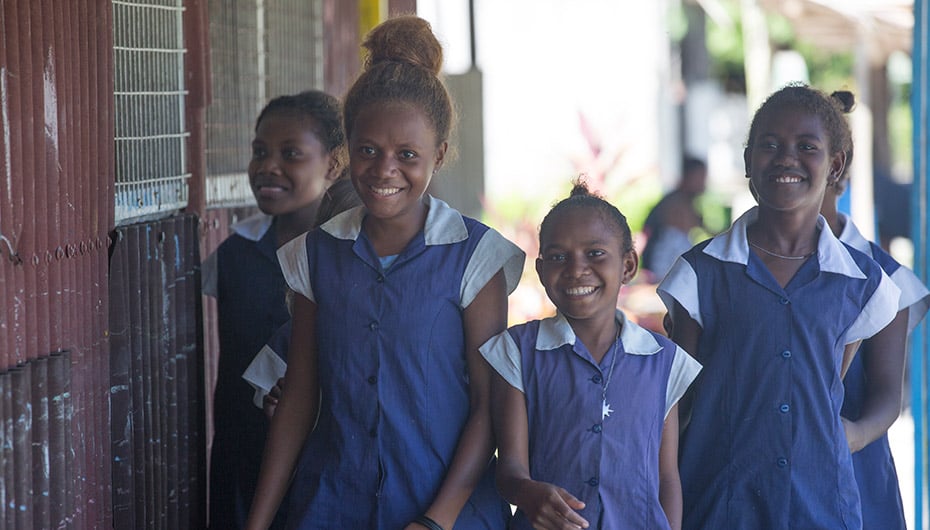As Australia invests in the Coral Sea Cable to promote greater internet connectivity it must also invest in combatting the risk – particularly when it comes to the safety of children in the Solomon Islands, Kiribati and Papua New Guinea.
This is the warning from three Australian organisations that have joined forces to launch the Online Safety in the Pacific report. They are: Plan International Australia, ChildFund Australia and the Young and Resilient Research Centre of Western Sydney University.
The study notes that, while the rollout of cable internet systems across the Pacific opens up unprecedented learning opportunities for children, it also exposes them to new risks of harm.
Now is the time to act
“As Australia invests in the Coral Sea Cable to promote greater internet connectivity, it must also invest in combatting the growing risk of online child sexual exploitation, grooming and cyber-bullying in the Pacific,” said Susanne Legena, CEO of Plan International Australia, a charity that promotes equality for girls.
“Now is the time to act, to invest in the protective frameworks and programs that will prevent children and young people from being harmed online.
“The levels of violence and abuse against children, and in particular women and girls, is already disproportionately high in the Pacific Islands. Without proper investment and planning, it could be exacerbated by increased uptake of digital technologies,” Legena stated.
Measures to keep kids safe
Margaret Sheehan, CEO of ChildFund International, agrees. ChildFund is a Sydney-based independent international development organisation that works to reduce poverty among children.
“The opportunities that connectivity provides are paramount for children and young people across the Pacific. However, we must be vigilant in taking adequate measures to keep them safe,” she said.
Among the children surveyed for the report, 77% said the risk of accessing inappropriate content such as horror movies and pornography was their greatest fear, followed by cyber-bullying (38%),
Worried at lack of control
Meanwhile, parents and carers identified a lack of control over what children were accessing as their greatest fear.
Participants in the study generally believe girls are more at risk than boys to online abuse and less capable of managing risk. This leads to girls’ access to online spaces being limited by their parents.
The research is intended to inform ChildFund Australia and Plan International Australia’s child protection work across the region into the future.
Build on existing programs
It will build on existing programs that increase the self-protective behaviours of children, equip parents to be partners in online safety and provides governments with tools required to prevent and respond to online abuse and exploitation.
The Coral Sea Cable System is a 4,700km-long fibre optic submarine cable system linking Sydney to Port Moresby in Papua New Guinea and Honiara in the Solomon Islands. The project also includes a 730km submarine cable system connecting Honiara to Auki (Malaita Island), Noro (New Georgia Island) and Taro Island.
Australia is providing the majority of funding, with PNG and Solomon Islands Governments jointly contributing up to one-third of project costs.












